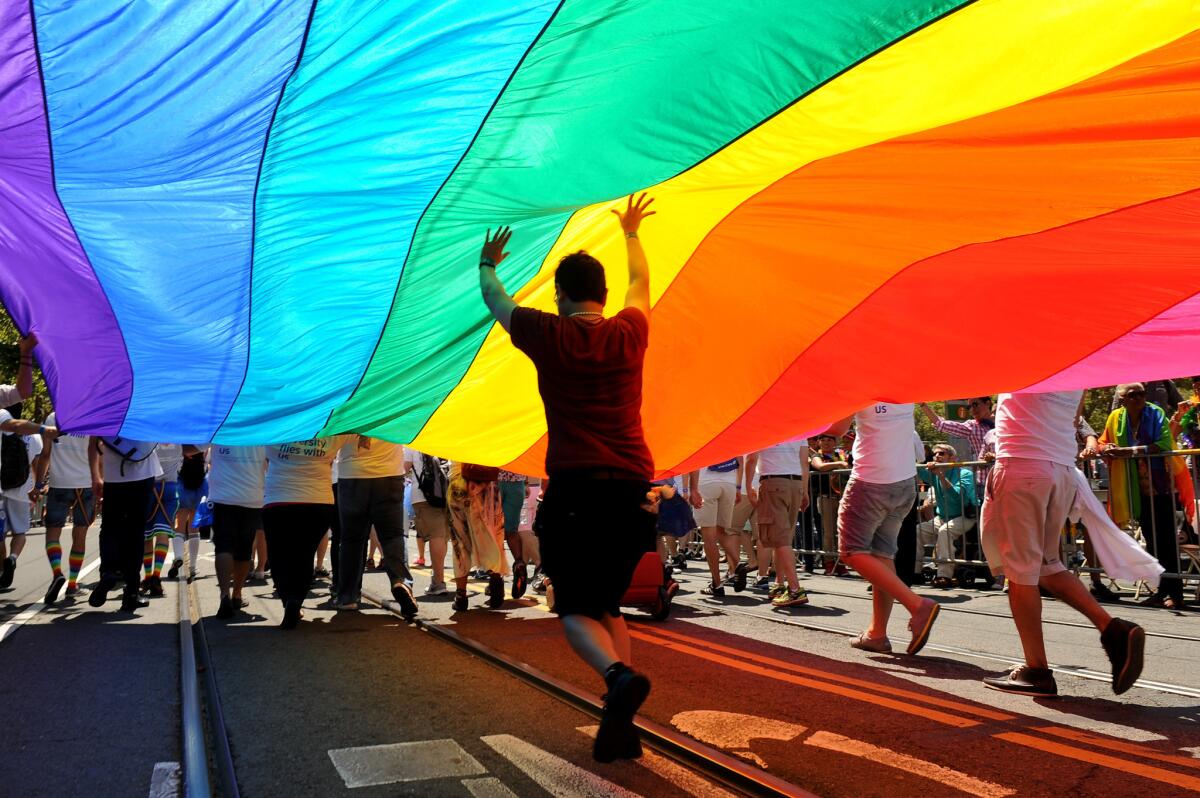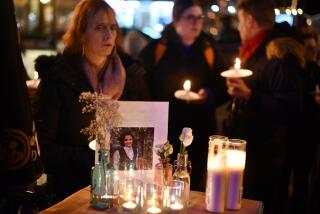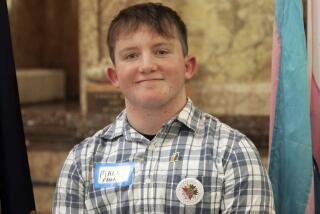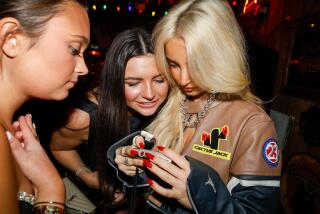Do ‘jokesters’ distort research on gay youth?

A controversial new study argues that a host of research on gay, lesbian and bisexual teenagers could be based on faulty data because of confused teens and “jokesters” who later said they were straight.
The report focuses on the National Longitudinal Study of Adolescent Health, a survey that followed a nationally representative group of tens of thousands of teens into adulthood. Add Health, as it is known, is considered one of the most important sources of data on the lives of young people, including those who are gay, lesbian and bisexual.
What caught the attention of Ritch Savin-Williams, a professor at Cornell University, was the fact that more than 70% of the teens who said they had ever had a “romantic attraction” to someone of the same sex later told researchers that they were straight.
That struck Savin-Williams as odd, since teens usually come out of the closet, not the other way around, he said. In his analysis published last month in the Archives of Sexual Behavior, Savin-Williams and a fellow researcher contend that the surprising result showed that some teens didn’t understand the question, while others were “jokesters” who were having fun with the survey.
People who were “inconsistent” on their sexual attraction scored lower in intelligence and got lower grades, the researchers found. The questions about “romantic attraction” might have confused them, especially since the survey did not define what that meant, said Savin-Williams, the director of Cornell’s Sex and Gender Lab.
Others may have answered falsely for fun, he added. Earlier research on the Add Health survey found some signs of dishonesty, the study noted. For instance, hundreds of teens said they had an artificial hand, arm, leg or foot, yet few reported the same thing when interviewed at home. The new study found “inconsistent” boys and girls were more delinquent and more likely to say they weren’t honest when they filled out the survey.
Savin-Williams said the findings raise questions about a wide swath of research on “sexual minority” youth that is based on the Add Health survey. Many such studies have shown worse physical and mental health for teens attracted to the same sex, for instance. The study argued confused teens and “jokesters” may have distorted those results, making “sexual minority” teens seem to be in worse shape than they were, the Archives study argued.
The existence of “inconsistent” teens isn’t new to social science researchers. “It’s not that we saw something that no one else had seen,” Savin-Williams added. “But they kept using the data. ... People should have said, ‘Hold on here. Who are these kids?’”
Other experts challenged the assertion that the existence of “inconsistent” teens undermines findings from earlier studies. The notion that gay, lesbian and bisexual teens are at higher risk of suffering worse physical and mental health is consistent with many other studies based on different sources of data, said Ilan Meyer, a scholar at UCLA’s Williams Institute, which conducts research on sexual orientation and gender identity law and public policy.
Though the new study points to some “interesting issues,” Meyer said, “we don’t know what the results would look like if these inconsistent youth were not included.” The study raises the question but doesn’t actually answer it, he argued.
Other experts argued that “inconsistent” teens aren’t necessarily just “jokesters” or confused. University of Arizona sociologist Stephen Russell, who has used the Add Health data in his own research on sexual attraction and health risks, said it makes perfect sense that young people might have romantic feelings for the same sex, yet later call themselves straight -- especially in light of enduring stigma against gays, lesbians and bisexuals in many parts of the country.
“Why is it unlikely they might be questioning who they are -- and grow up to identify as straight?” Russell asked. If anything, he argued, such teens might skew the survey results in the other direction, driving down rates of risky behavior and health vulnerability among “sexual minority” teens.
ALSO:
Natural brain chemical could harsh the high of marijuana
Glow-in-the-dark pigs are part of radiant green menagerie
Dialing while behind the wheel is riskiest form of distracted driving







